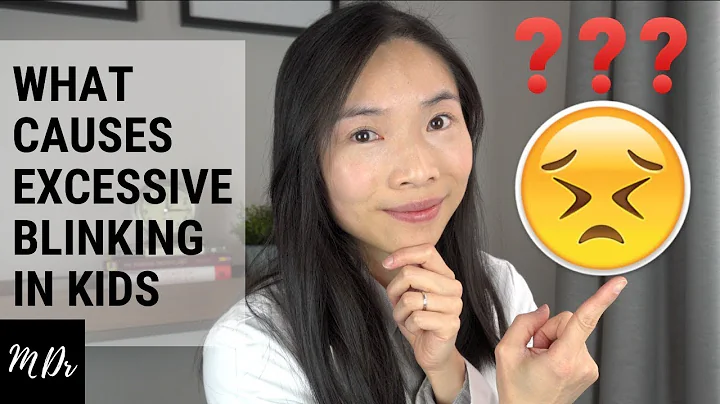In daily life, we often encounter children who frequently blink, frown, sniff, pout, open their mouths, shake their heads, etc. Many parents regard this phenomenon as a bad habit, or as naughty, and try to pass the strict control of their parents. Management to correct bad habits. Not only does this approach not improve the child's abnormal performance, but it often aggravates the symptoms. In fact, such children suffer from a disease called "tic disorder" . In recent years, the incidence rate of tic disorder has been increasing year by year, and it also suffers from attention deficit hyperactivity disorder, obsessive-compulsive disorder, anxiety and other problems, which not only affects the child's normal study and life, but also affects the child's self-esteem and self-confidence. and the psychological status of family members, so tic disorders and their comorbidities cannot be ignored.
Recently, a 16-year-old boy came to the inpatient ward of the Pediatric and Juvenile Ward of Wuhan Mental Health Center. Last year, he began to clear his throat involuntarily, 1-2 times a day. Soon after, the patient began to blink and grimace his teeth. Ego cannot be controlled. During class, there were shaking hands, claw-like movements, tense abdominal muscles, and involuntary shaking of the lower limbs. After the teacher found out, he initially thought that the patient was being naughty and not paying attention in class. Later, he discovered the abnormality and suggested that his parents take him to see a doctor. The family took him to several hospitals for treatment, but his symptoms were not completely improved. He spent his summer vacation to be hospitalized for treatment. After being admitted to the hospital, he was diagnosed with tic disorder.
What exactly is tic disorder

Tic disorders (TD) are a type of disorder that begins in childhood and adolescence and is characterized by involuntary sudden, rapid, repetitive, non-rhythmic, stereotyped single or multiple muscle movements and ( or) A complex chronic neuropsychiatric disorder characterized by vocal tics. Patients lack self-esteem due to motor and/or vocal tics, resulting in impairment of family life, social image, study and work performance, and difficulty in adapting to the environment.
Domestic reports indicate that the prevalence of tic disorder among people aged 8 to 12 years old is 2.42‰. The most common age range is 5 to 10 years old, with more boys than girls, and the male to female ratio (2 to 4):1. Research has confirmed that tic disorders are related to genetic, neurobiochemical, and psychological factors. Children's nervousness, anxiety, increased psychological pressure, stress response may induce the disease.
There are three common types: transient tic disorder; chronic motor or vocal tic disorder; combined vocal and multiple motor tic disorder, now called Tourette syndrome (also called Tourette syndrome ).
What are the symptoms of tic disorder

Sudden, brief, meaningless movements. Such as blinking, shrugging nose, twisting mouth, shrugging, turning or slanting shoulders, etc. There are also slightly slower, slightly longer duration, seemingly purposeful movements. Such as jumping, running, slapping and other actions, imitating other people's actions, etc. Sudden, meaningless vocalizations occur. Such as blowing the nose, clearing the throat, barking, or monotonous sounds such as "ah" and "ah". Often accompanied by attention deficit , anxiety, depression, obsessive-compulsive symptoms, etc.
Tic disorder is a neuropsychiatric disorder that generally does not affect the child's physical health. However, some children with tic disorder will experience psychological burden and anxiety, are unwilling or afraid to have normal interactions with other people, and even become tired of studying. Therefore, parents and school teachers must pay attention.
1. First of all, parents and teachers should correctly identify tic symptoms and distinguish them from naughty and troublesome ones. Give more encouragement and care to the children, reduce criticism and accusations, adjust the children's psychological state, eliminate shame , and downplay the children's tic symptoms.
2. For children with mild tic disorder, the main method is psychological counseling . Parents and school teachers closely observe, provide support and encouragement to children, and teach children to better deal with rejection and ridicule from peers.
3. When you find that the patient has obvious tics, ask him to do some relaxing things, such as helping to hold a book, folding paper, drawing, etc., so as to reduce and relieve the symptoms of tics through purposeful movements of the body.
4. Eat a light diet, avoid stimulating and irritating foods, and eat regularly. Pay attention to rest and avoid watching tense, thrilling and exciting film and television programs. It is not advisable to watch TV, play computers and game consoles for a long time. Encourage children to participate in more cultural and sports activities and other relaxation training .
5. Pay attention to your child’s emotional problems. If you have comorbid symptoms such as anxiety, depression, hyperactivity, impulsivity, and obsessive-compulsive ideas, you need to go to a professional mental health institution for diagnosis and treatment in a timely manner.
Source: Wuhan Mental Health Center official





















